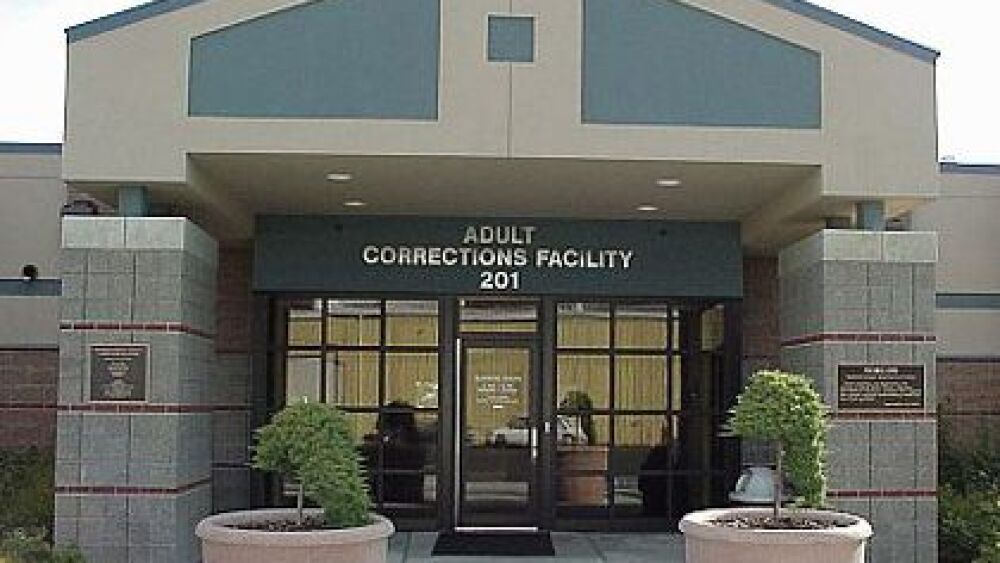By Andrew Selsky
Associated Press
SALEM, Ore. — Pro-immigrant activists and the legal director of the ACLU of Oregon said Friday that officials appear to be breaking state law by holding people for federal immigration authorities at an Oregon jail where several of the detainees this week ended a hunger strike over what they called horrible conditions.
They say the deal between the Northern Oregon Regional Corrections Facility, or NORCOR, and a federal agency violates a 1987 Oregon law prohibiting law officers in Oregon from spending public dollars, resources or personnel “for the purpose of detecting or apprehending persons” whose only crime is being in the U.S. illegally.
The Oregon State Sheriffs’ Association says that law does “prohibit Oregon police officers from acting as immigration enforcement officers.”
But Oregon Attorney General Ellen Rosenblum’s communications director told The Associated Press that the law doesn’t apply in this situation.
“State law forbids using law enforcement resources to detect or apprehend people who have not committed a crime, but may be in violation of immigration laws,” Kristina Edmunson said Friday in an email. “It doesn’t appear that NORCOR resources are being used to detect or arrest people, so the 1987 law would not be applicable.”
Some, if not all, of the detainees were transferred to the facility from the U.S. Immigration Customs and Enforcement detention facility in Tacoma, Washington.
The relationship between the jail and ICE has existed for some time, but it gained prominence this week after a half-dozen ICE detainees went on a hunger strike.
“Conditions are abysmal,” said Mat Dos Santos, legal director of the American Civil Liberties Union of Oregon. “The food is composed mainly of bread with little nutritional value. They don’t even get issued socks. They have to purchase them. The live in worse conditions than those people being held as criminals.”
But Bryan Brandenburg, administrator of NORCOR, said the detainees get full sets of clothing, including socks, and that the menu meets dietary and nutritional requirements.
“That ACLU lawyer is completely off base,” Brandenburg said Friday night.
Their only chance to be outside is in a small space enclosed by high walls with no roof and netting overhead, said Dos Santos, who has visited clients in the squat, windowless buildings in an industrial part of The Dalles, a block from the Columbia River.
ICE pays for the jail, which is publicly funded and served four counties in north-central Oregon, to hold detainees, according to a budget document from the facility. The Northern Oregon Regional Corrections Facility’s budget message for fiscal year 2017-2018 said that with a current projection of an average of 40 detainees per day, ICE revenue was expected to increase to just over $1 million.
ICE spokeswoman Rose Richeson said in an email Friday that she was gathering details regarding ICE’s relationship with the facility, but she said “U.S. Immigration and Customs Enforcement (ICE) takes very seriously the health, safety and welfare of those in our care.”
The Gorge ICE Resistance, a coalition of groups in the Columbia River Gorge, plans to hold a rally at noon Saturday in front of the jail to demand that the facility honor what the coalition described as commitments to the hunger strikers to provide them with a microwave oven and the ability to join jail programs like substance-abuse treatment to which they had previously been denied access.
The protesters will also demand an end to the Northern Oregon Regional Corrections Facility’s contract with ICE, Gorge ICE Resistance member Solea Kabakov said in a phone interview from The Dalles.
“NORCOR has a reputation for its horrible treatment of those inside its walls despite its big budget,” Kabakov said in a statement.
Dos Santos, in a telephone interview from Portland, said ICE detainees and regular inmates cannot receive family visitors, only lawyers and clergy. The ICE detainees are also barred from earning money by working in places like the jail laundry and cafeteria, so they often lack the funds to pay for phone calls at the rate of 25 cents per minute.
“They feel completely isolated,” Dos Santos said. “There is a sense of desperation. This initiated the desire to start a hunger strike.”
He said he believes the Northern Oregon Regional Corrections Facility holding detainees for federal immigration enforcement violates Oregon’s state law. “We are considering all of our options, including legal action,” Dos Santos said.
Brandenburg said the jail does not violate Oregon law because it doesn’t detain immigrants but only receives them from ICE because the agency’s own facility in Tacoma is often overflowing.
He said four detainees had participated in the hunger strike and that one had transferred to Tacoma while the three who remained ended their hunger strike Thursday.












